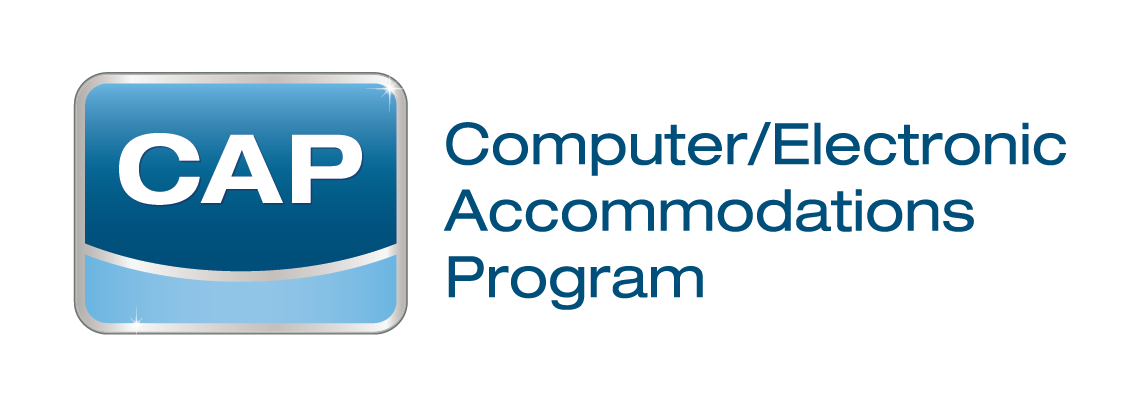In 2004, CAP began the Service Member (SM) Initiative. This was a special initiative designed to cover active duty Service members, to include Guard or Reserve who are on active orders, including title 10 orders. The initiative operated exactly as others in the past, until Public Law 109-364 was passed on October 17, 2006. This allows the Service members to keep the assistive technology CAP provides to them upon separation.
Service Member Support
Our soldiers, sailors, airmen and marines are returning from deployment in the overseas contigency operation. Many of them are not returning to their duty assignments, instead, they are recovering at various Military Treatment Facilities (MTFs) and wounded warrior programs because of injuries they sustained in theater.
CAP works closely with wounded, ill and injured Service members across the nation to ensure they receive appropriate accommodations and support services for their needs by introducing assistive technology during recovery and rehabilitation at MTFs and wounded warrior programs.
Accommodations are available for Service members with injuries that have caused:
Dexterity Impairments, including upper extremity amputees:
CAP provides various devices to assist Service members who have sustained nerve damage, fractures, burns, and amputations to their upper extremities. Accommodation options include compact keyboards, alternative pointing devices, and voice recognition software with certified training.
Vision Loss:
For Service members with low vision, screen magnification software can reduce eyestrain, blurry vision, and eye fatigue. Magnification software offers a wide range of features, enabling users to customize the application to their specific needs. Portable magnification devices are also available. For complete vision loss, CAP provides scanners and screen reader software with certified training.
Hearing Loss:
Assistive listening devices (ALD's) are available for Service members who have sustained hearing loss and damage, including tinnitus, hearing loss in one ear, and variable hearing loss. ALDs can be used at an individual's discretion, allowing the user to adjust the level of amplification to their needs and reduce unwanted background noise.
Cognitive Injuries, including Traumatic Brain Injuries (TBI):
For TBI and closed-head injuries, CAP provides Personal Digital Assistants (PDAs) to Service members who struggle to remember appointments, medications, names, and phone numbers. PDA options vary in complexity, from simple cueing aids to powerful computer-based applications that can aid an individual in activities of daily living.
The CAP staff is dedicated to ensuring all resources and assistive devices are available to assist our nation's Service members in their rehabilitation process and employment search. For more information, please contact CAP's Outreach Team at cap.outreach@mail.mil.


